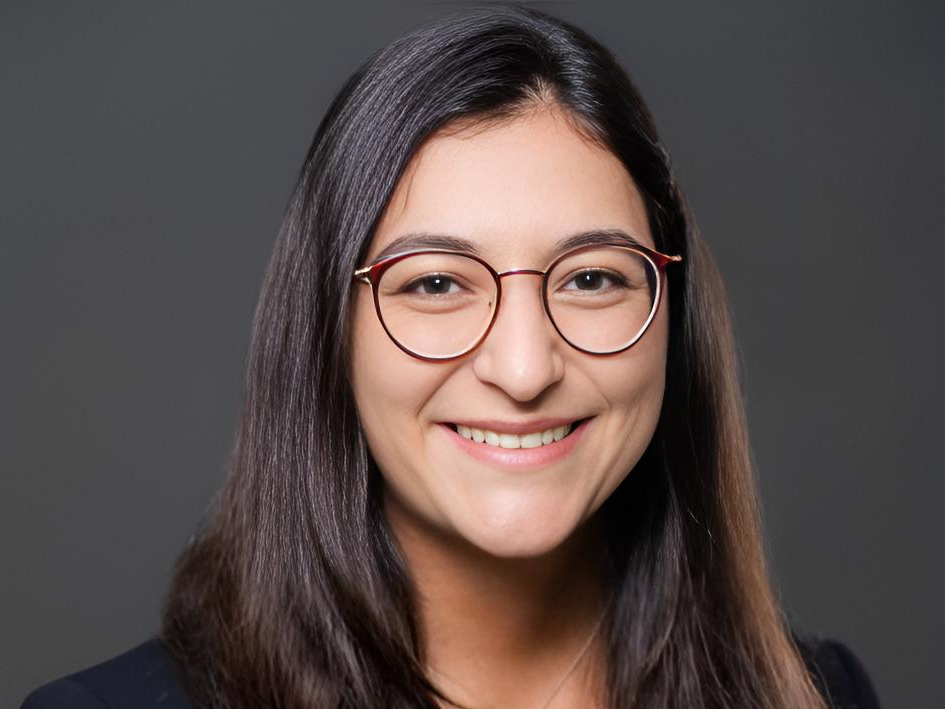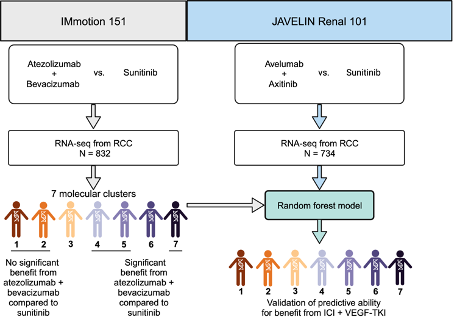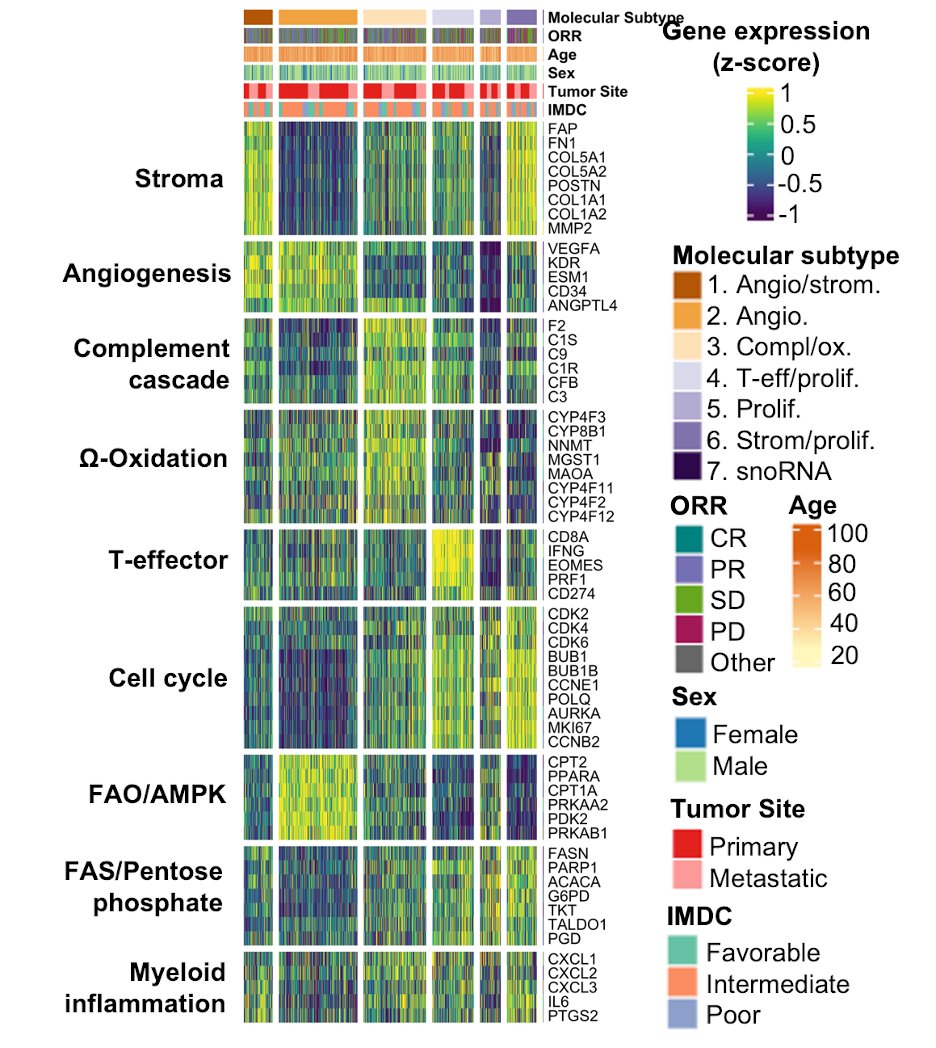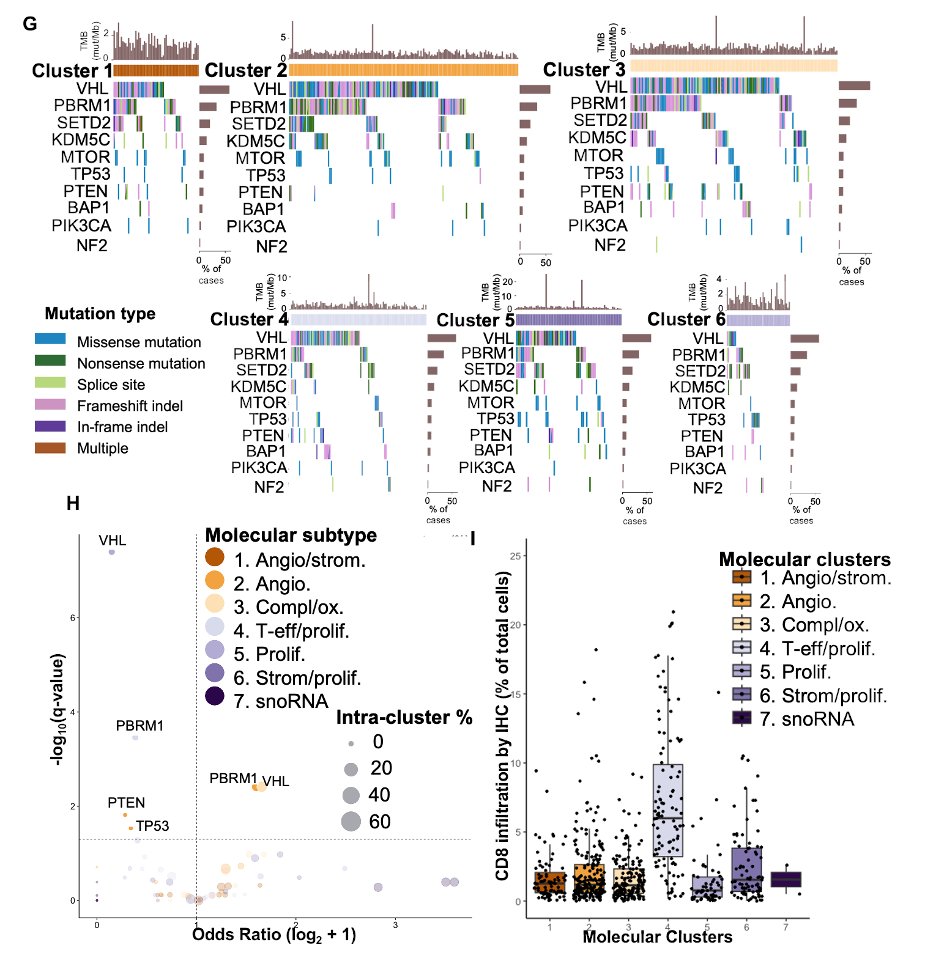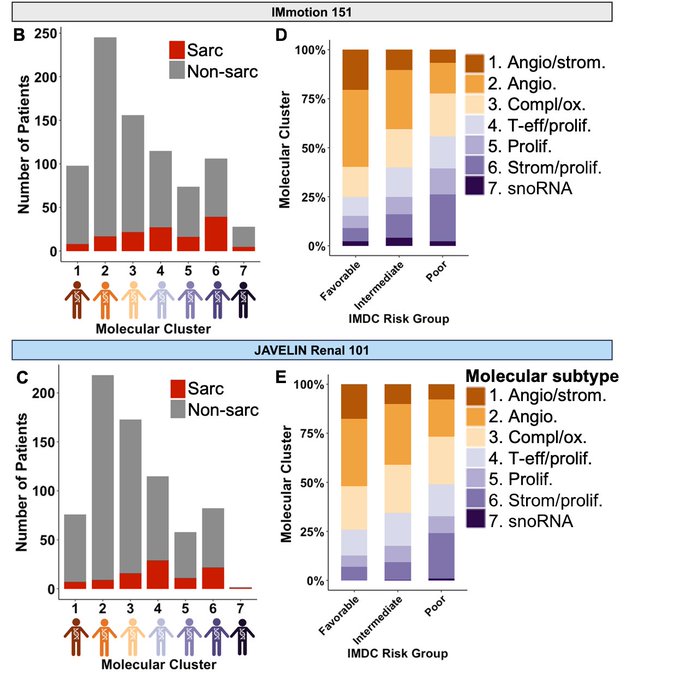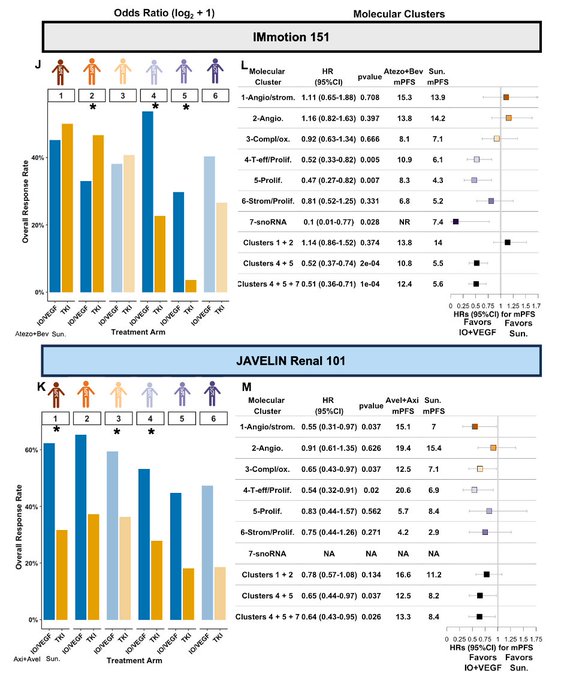Renee Maria Saliby, Postdoctoral GU Oncology Research Fellow at Dana-Farber Cancer Institute, shared a post on X/Twitter:
“Thrilled to share that our paper ‘Impact of RCC molecular subtypes on immunotherapy and targeted therapy outcomes’ is now published in Cancer Cell.
Collaborative effort co-led with Chris Labaki and Tejas Jammihal under Eli Van Allen, Shukla Sachet, Toni Choueiri, David Braun‘s mentorship.
Despite great advances in the testosterone replacement therapy landscape of RCC, the field still lacks robust predictive biomarkers. The IM151 molecular subtypes were developed using NMF. Our aim was to evaluate the biology and predictive nature of these molecular clusters in the JR101 trial.
A machine-learning model assigned each patient to a molecular subtype according to RNA expression: (1) angiogenic/stromal, (2) angiogenic, (3) complement/oxidation, (4) T-effector/proliferative, (5) proliferative, (6) stromal/proliferative, (7) snoRNA.
We performed an orthogonal analysis using bulk RNA-seq, WES, baseline characteristics and clinical outcomes.
We observed similar patterns between IM151 and JR101 in the global distribution of patients across clusters, including proportion of patients within each IMDC risk group and their sarcomatoid status. Mutational landscapes of each cluster in both datasets were also aligned.
While the PFS and ORR varied between molecular clusters, in contrast to IM151, the IO-based axitinib + avelumab combination had improved outcomes vs sunitinib across all clusters.
Our study has some limitations, and we believe that future biomarker efforts should consist in comprehensive approaches integrating several modalities, both host and tumor variables and account for heterogeneity.
We are eternally grateful to our collaborators, all scientists working to fight RCC and most importantly to patients and their families.”
Proceed to the article.
Source: Renee Maria Saliby/X


